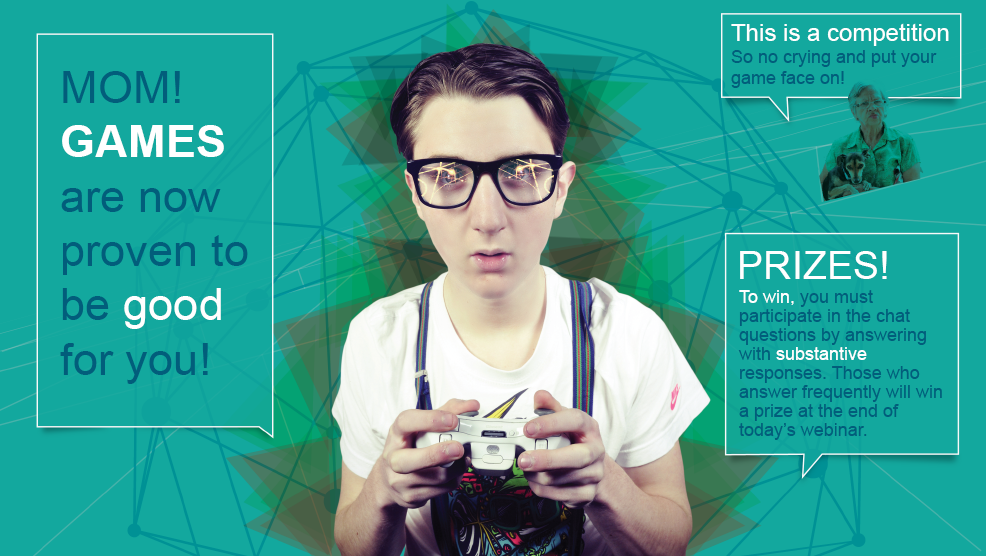Gamification (or just plain “gaming”) is a huge buzzword in the learning community. According to the experts in human behavior and brain development, gaming is not only good for you, but essential to the development of parts of our brains that control our cognitive skills. As with any topic of this nature, we will continue to evolve our approach as experts expand our knowledge of its true potential. But to get us started, in this first post of a series on gamification, let’s discuss the building blocks of gaming, which begin with something we are all familiar with: play.
Play is an essential part of gaming; in fact, a game is just play with rules. Play is the animal kingdom’s classroom. The urge to play is so strong that it can actually overrule the urge to eat! Check out this short video that I found after discovering a fascinating TED talk by Stuart Brown, called “Why Play Is Vital No Matter Your Age,” focused on the power of play. It can be argued that our traditional way of learning, where we sit and read in a classroom, is not most efficient way for us to learn. As Clark Aldrich asked in his book Learning Online with Games, Simulations, and Virtual Worlds, “Have you ever seen a mother lion with her cubs sitting at a blackboard being taught to hunt? No, they learn by playing.”
What does learning start with? It starts with a question. However, as Beau Lotto discusses in his TED talk, questions create uncertainty. Lotto argues that uncertainty is naturally a negative, “If you are uncertain that is a predator, then you’re most likely dead.” One could argue that to teach or train someone successfully, we would need to overcome that uncertainty. What better way than to use games? Uncertainty is at the core of every game and games are able to transform uncertainty into something fun and enjoyable.
If you are a visual designer, you may ask yourself, “Why is he talking about psychology and how we perceive our world around us?” I truly believe that gamification is not as simple as plopping on a leaderboard or a badge. To use gaming successfully to promote learning, we must understand why and how they work.
Stay tuned for more on this topic. I look forward to sharing all the research and forward-thinking that I encounter on a daily basis!





I agree that the best way to learn is through games. People tend to retain knowledge better through play than traditional study. I’ve found this myself to be true. Great article!